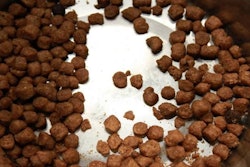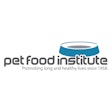
Officials with the U.S. Food and Drug Administration Center for Veterinary Medicine released several documents and statements about the agency’s investigation into correlations between specific dog foods and cases of canine dilated cardiomyopathy. The information largely came from a September 29 virtual meeting of academic, industry and veterinary medicine scientists. Participants included Dana Books, president and CEO of the Petfood Institute, Jeff Johnston, senior vice president of Champion Petfoods, and Renee Streeter, DVM, study co-author and principal clinical nutritionist with BSM Partners, a pet industry consulting agency.
Summary of FDA announcements about DCM
Key points from Interdisciplinary Scientific Cooperation Will Lead the Way to Understanding of Non-Hereditary DCM, CVM Director Dr. Steven Solomon’s commentary on the meeting.
The event was a forum where scientists with research into DCM could share information, collaborate, and discuss many different, and even conflicting, theories on the condition.
KSU has posted materials from various presenters at the scientific forum to make them available to the public. This includes Solomon’s opening remarks and a presentation by a team of FDA scientists about a subset of DCM cases that made full or partial recoveries.
Scientific Forum Exploring Causes of Dilated Cardiomyopathy in Dogs
Opening remarks for Scientific Forum Exploring Causes of Dilated Cardiomyopathy in Dogs
FDA update on dilated cardiomyopathy: Fully and partially recovered cases
Historically, DCM has been primarily linked to genetic predisposition in certain breeds, but in the context of these atypical cases, emerging science appears to indicate that non-hereditary DCM is a complex medical condition that may be affected by the interplay of multiple factors such as genetics, underlying medical conditions, and diet.
FDA has not taken regulatory action against or declared any specific pet food products unsafe or definitively linked to DCM. As the scientific community looks further into the role that diet may play in these cases, FDA hope to explore additional avenues about ingredient levels, nutrient bioavailability, ingredient sourcing, and diet processing to determine if there are any common factors.
Key Points from Questions & Answers: FDA’s Work on Potential Causes of Non-Hereditary DCM in Dogs
1. What is canine dilated cardiomyopathy (DCM) and how does non-hereditary DCM differ from the genetic form?
DCM is a disease of a dog’s heart muscle and results in an enlarged heart. As the heart and its chambers become dilated, it becomes harder for the heart to pump, and heart valves may leak, which can lead to a buildup of fluids in the chest and abdomen (congestive heart failure).
Reports from veterinary cardiologists demonstrate some good results in improving heart function in non-hereditary DCM cases, unlike genetic forms of DCM, with appropriate veterinary treatment and dietary modification, when caught early in the progression of the disease.
2. Why is FDA focused on potential dietary causes of non-hereditary DCM?
While non-hereditary DCM appears to be caused by a confluence of multiple factors, FDA is a regulatory agency and has regulatory authority over animal food, including pet food, thus the reason for the agency’s focus on diet as a potential contributor. There is no public health agency that tracks animal health in the same way that the Centers for Disease Control and Prevention tracks human health, therefore FDA has called on the veterinary and academic communities, as well as industry, to contribute research on various aspects of non-hereditary DCM.
3. What is FDA doing to better understand non-hereditary DCM cases?
Our veterinarians, animal nutritionists, epidemiologists and pathologists have been working with veterinary cardiologists and nutritionists from academia, industry and private practice to better understand the clinical presentation of the cases and potential ties to diet, such as bioavailability of critical nutrients and how well a dog digests these nutrients.
4. What additional information would help further understanding of non-hereditary DCM?
We have asked pet food manufacturers to share diet formulation information, which could substantially benefit our understanding of the role of diet in the development of non-hereditary DCM. Formulation data shared with the FDA will be kept confidential.
5. How many cases have been reported to the FDA?
Between January 1, 2014 and July 31, 2020, the FDA received more than 1,100 case reports of diagnosed dilated cardiomyopathy in dogs. In the reported cases, more than 280 of those dogs were reported to have died. Of the approximately 20 cat reports, there were approximately 13 cat deaths.
6. Do the diets associated with cases of non-hereditary DCM appear to have any commonalities?
Most of the diets associated with the reports of non-hereditary DCM have legume seed ingredients, also called pulses (e.g., peas, lentils, etc.), high in their ingredient lists (although soy is a legume, we did not see a signal associated with this ingredient). These include both grain-free and grain-containing formulations. Legumes, including pulse ingredients, have been used in pet foods for many years, with no evidence to indicate they are inherently dangerous, but analysis of data reported to CVM indicates that pulse ingredients are used in many grain-free diets in greater proportion than in most grain-containing formulas.
The FDA does not know the specific connection between these diets and cases of non-hereditary DCM and is continuing to explore the role of genetics, underlying medical conditions, and/or other factors.
7. Is FDA planning to continue naming the brands most associated with cases?
No, we are not planning to update the commonly reported brands, as we are aware that several pet food companies have adjusted diet formulations since our initial announcements about DCM.
8. Is this an issue with only grain-free diets or diets containing legumes or pulses?
No. FDA has received reports of non-hereditary DCM associated with both grain-free and grain-containing diets.
9. As a regulatory agency, has FDA requested any recalls of pet foods associated with non-hereditary DCM?
FDA has no definitive information indicating that the diets are inherently unsafe and need to be removed from the market, but we are continuing to work with stakeholders in assessing how the diets may interact with other factors that may be impacting non-hereditary DCM.
10. How long will it take to pinpoint the cause(s) of non-hereditary DCM?
We see this as an ongoing, collaborative scientific venture, of which FDA has just one piece as the regulator of animal food and reviewer of adverse event reports received as part of the pet food early warning and surveillance system.



















